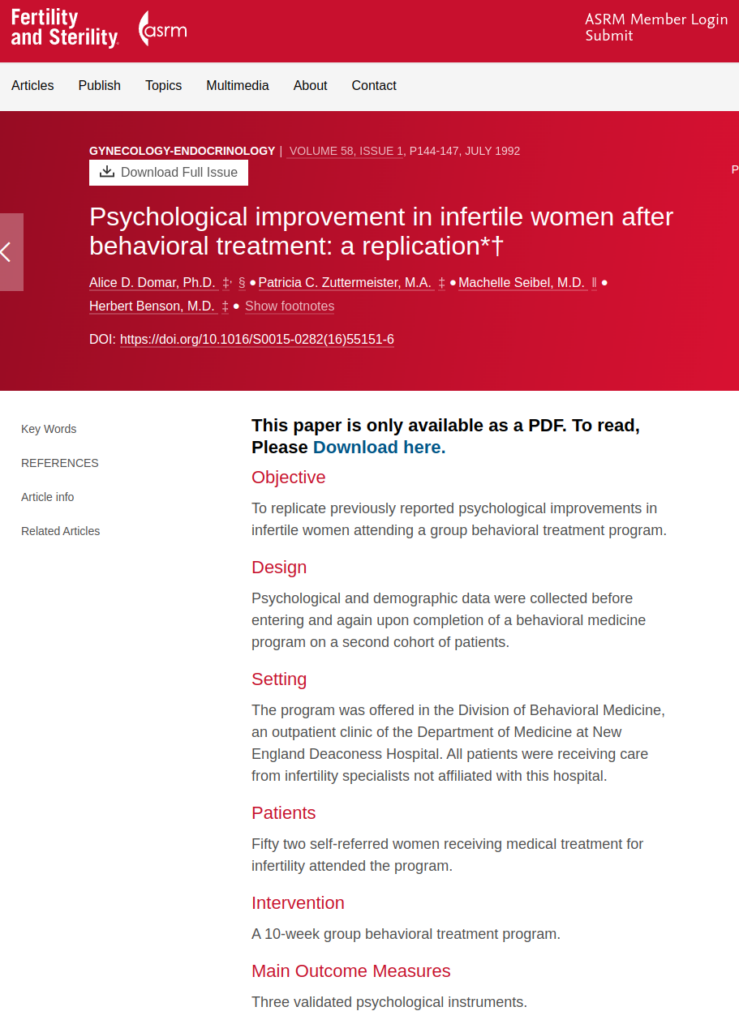Objective: To replicate previously reported psychological improvements in infertile women attending a group behavioral treatment program.
Design: Psychological and demographic data were collected before entering and again upon completion of a behavioral medicine program on a second cohort of patients.
Setting: The program was offered in the Division of Behavioral Medicine, an outpatient clinic of the Department of Medicine at New England Deaconess Hospital. All patients were receiving care from infertility specialists not affiliated with this hospital.
Patients: Fifty two self-referred women receiving medical treatment for infertility attended the program.
Intervention: A 10-week group behavioral treatment program.
Main outcome measures: Three validated psychological instruments.
Results: Psychological improvement was statistically significant (Profile of Mood States Tension/Anxiety: P less than 0.0001; Depression/Dejection: P less than 0.0122; Vigor/Activity: P less than 0.0431; Confusion/Bewilderment: P less than 0.0057; Spielberger Anger Expression: P less than 0.0013; Spielberger State Anxiety: P less than 0.0037, and Trait Anxiety: P less than 0.0001).
Conclusions: Behavioral treatment is associated with significant decreases in negative psychological symptoms.

